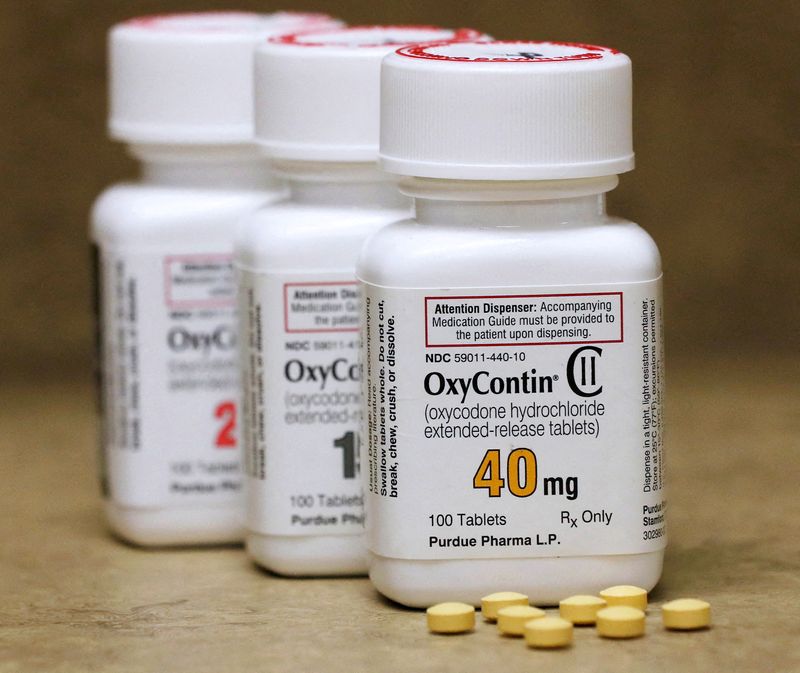By Tom Hals and Dietrich Knauth
(Reuters) - Victims of America's opioid epidemic confronted members of the Sackler family that owns Purdue Pharma on Thursday with wrenching stories of suffering they said was caused by the painkillers that built the company fortune.
"You got rich off our dead bodies and told us it was our own fault for dying," Ryan Hampton told Richard Sackler, a former board member, during a Zoom hearing in U.S. Bankruptcy Court.
The emotional court hearing stemmed from a $6 billion settlement between the Sacklers and state attorneys general that could resolve claims over the family's role in the crisis without taking them to trial.
Purdue Pharma allegedly downplayed the addiction risks of its OxyContin painkiller, helping to fuel a healthcare crisis that has claimed more than 500,000 opioid overdose deaths over two decades.
Members of the Sackler family have denied wrongdoing. They said last week in a statement that they "sincerely regret" that OxyContin "unexpectedly became part of an opioid crisis."
The 26 speakers were chosen by the official committee that represents creditors in Purdue's bankruptcy, including the thousands of people who filed personal injury claims against Purdue Pharma.
Their stories included the loss of a twin, a Korean War veteran begging his grandson for pills and anguished parents struggling to cope with loss and anger directed at the Sacklers.
David Sackler and Theresa Sackler attended by Zoom and David's father Richard Sackler did not appear on the video but told the court he was listening by phone. The Sacklers were not permitted to respond to the victims' statements and Hampton said they did not appear to react.
Kristy Nelson of Indiana played a recording of the emergency call she placed when she discovered her overdosed son and can be heard screaming, "Oh my god he's dead!" as the operator tries to extract information about her location.
While many U.S. overdose deaths were caused by illicit drugs such at heroin and fentanyl, often victims became addicted to opioids through pain medicines such as OxyContin prescribed for high school sports injuries or recovery from surgery.
Photographer Nan Goldin said an OxyContin addiction that began in 2014 almost ended her 50-year career, reducing her to a "hermetic state" in which she barely left her room for three years. She said the Sacklers should not be allowed to buy respectability through naming agreements with museums like the Metropolitan Museum of Art and the Louvre, calling it "toxic philanthropy."
"Their legacy is forever tainted," Goldin said.
Richard Sackler told the bankruptcy court in August that the family did not bear responsibility for the crisis. At the same hearing, his son David testified that the family has a "moral responsibility" to help curb the opioid epidemic.
Both served as Purdue board members along with several other members of the family and have been named in lawsuits alleging they directed deceptive marketing of addictive painkillers.

Purdue filed for Chapter 11 bankruptcy in 2019, and the court extended to the Sacklers legal protections from being sued - one of the main benefits of seeking bankruptcy - despite the family members never filing for bankruptcy themselves.
That controversial protection is being challenged in court by the U.S. Department of Justice.